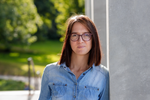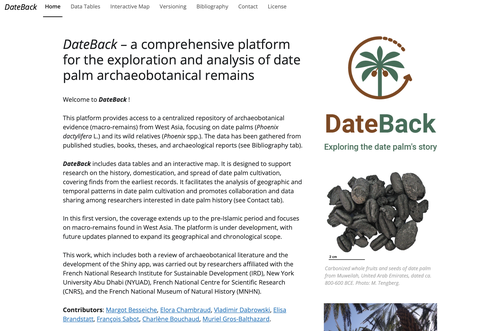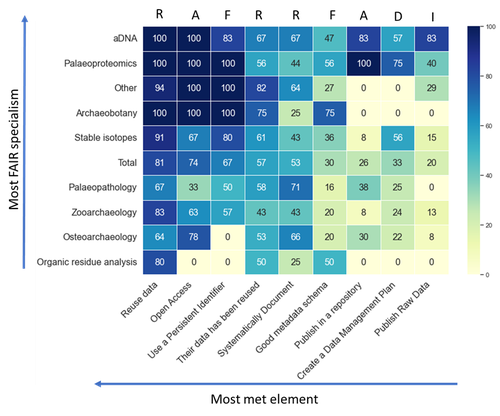
SPECIALE Claudia
- Unit of Archaeobotany, IPHES - Catalan Institute of Human Paleoecology and Social Evolution, Tarragona, Spain
- Archaeobotany, Environmental archaeology, Mediterranean, Neolithic, Paleoenvironment, Protohistory
- recommender
Recommendations: 2
Reviews: 0
Recommendations: 2

DateBack, an evolving open-access repository of Phoenix archaeobotanical data supporting new perspectives on the history of date palm cultivation
Recommendation for the Publication of DateBack: An Open Archaeobotanical Repository
Recommended by Claudia Speciale based on reviews by Claudia Moricca and 1 anonymous reviewerI wholeheartedly recommend the publication of "DateBack, an evolving open-access repository of Phoenix archaeobotanical data supporting new perspectives on the history of date palm cultivation" (Besseiche et al. 2025). This work emerges at a crucial moment in archaeobotanical research, responding to calls for more integrative, open-access data infrastructures (e.g. Lodwick 2019; Reiter et al. 2024) that enable comparative studies across time and space.
The authors address a key question in agricultural and environmental history: how, when, and where did humans shape the distribution and cultivation of Phoenix dactylifera? They hypothesize that only through standardized, large-scale archaeobotanical data, long-standing narratives of domestication and dispersal can be assessed. To test this, they introduce DateBack, a curated database that aggregates published and unpublished archaeobotanical evidence, including seed morphometrics, radiocarbon dates, and contextual metadata.
The methodology is rigorous and transparent, involving systematic data collection, harmonization, and open-source publication following FAIR principles. The database’s preliminary results already suggest regionally distinct cultivation trajectories and long-distance interactions shaping date palm history, particularly in North Africa and the Arabian Peninsula.
I recommend the paper because it sets a new standard for data sharing in archaeobotany, moving beyond isolated case studies toward reproducible, collaborative science. The project fills a critical infrastructure gap and will likely catalyze new cross-disciplinary research. Its relevance extends from archaeology and botany to digital humanities and heritage data management.
In sum, DateBack is a timely and necessary resource, and I wish its publication will have a lasting impact on the field.
References
Margot Besseiche, Elora Chambraud, Vladimir Dabrowski, Elisa Brandstatt, François Sabot, Charlène Bouchaud, Muriel Gros-Balthazard (2025). DateBack, an evolving open-access repository of Phoenix archaeobotanical data supporting new perspectives on the history of date palm cultivation. bioRxiv, ver.2 peer-reviewed and recommended by PCI Archaeology https://doi.org/10.1101/2025.02.21.639487
Lodwick, L. (2019). Sowing the Seeds of Future Research: Data Sharing, Citation and Reuse
in Archaeobotany. Open Quaternary, 5, 7. https://doi.org/10.5334/oq.62
Reiter, S. S., Staniuk, R., Kolář, J., Bulatović, J., Rose, H. A., Ryabogina, N. E., ... & Timpson, A. (2024). The BIAD Standards: Recommendations for Archaeological Data Publication and Insights From the Big Interdisciplinary Archaeological Database. Open Archaeology, 10(1), 20240015. https://doi.org/10.1515/opar-2024-0015

How FAIR is Bioarchaeological Data: with a particular emphasis on making archaeological science data Reusable
FAIR data in bioarchaeology - where are we at?
Recommended by Claudia Speciale based on reviews by Emma Karoune, Jan Kolar and 2 anonymous reviewersThe increasing reliance on digital and big data in archaeology is pushing the scientific community more and more to reconsider their storing and use [1, 2]. Furthermore, the openness and findability in the way these data are shared represent a key matter for the growth of the discipline, especially in the case of bioarchaeology and archaeological sciences [3].
In this paper, [4] the author presents the result of a survey targeted on UK bioarchaeologists and then extended worldwide. The paper maintains the structure of a report as it was intended for the conference it was part of (CAA 2023, Amsterdam) but it represents the first public outcome of an inquiry on the bioarchaeological scientific community. A reflection on ourselves and our own practices. Are all the disciplines adhering to the same policies? Do any bioarchaeologist use the same protocols and formats? Are there any differences in between the domains? Is the Needs Analysis fulfilling the questions?
The results, obtained through an accurate screening to avoid distortions, are creating an intriguing picture on the current state of "fairness" and highlighting how Institutions' rules and policies can and should indicate the correct workflow to follow. In the end, the wide application of the FAIR principles will contribute significantly to the growth of the disciplines and to create an environment where the users are not just contributors, but primary beneficiaries of the system.
[1] Huggett j. (2020). Is Big Digital Data Different? Towards a New Archaeological Paradigm, Journal of Field Archaeology, 45:sup1, S8-S17. https://doi.org/10.1080/00934690.2020.1713281
[2] Nicholson C., Kansa S., Gupta N. and Fernandez R. (2023). Will It Ever Be FAIR?: Making Archaeological Data Findable, Accessible, Interoperable, and Reusable. Advances in Archaeological Practice 11 (1): 63-75. https://doi.org/10.1017/aap.2022.40
[3] Plomp E., Stantis C., James H.F., Cheung C., Snoeck C., Kootker L., Kharobi A., Borges C., Reynaga D.K.M., Pospieszny Ł., Fulminante, F., Stevens, R., Alaica, A. K., Becker, A., de Rochefort, X. and Salesse, K. (2022). The IsoArcH initiative: Working towards an open and collaborative isotope data culture in bioarchaeology. Data in brief, 45, p.108595. https://doi.org/10.1016/j.dib.2022.108595
[4] Lien-Talks, A. (2024). How FAIR is Bioarchaeological Data: with a particular emphasis on making archaeological science data Reusable. Zenodo, 8139910, ver. 6 peer-reviewed and recommended by Peer Community in Archaeology. https://doi.org/10.5281/zenodo.8139910